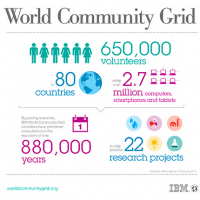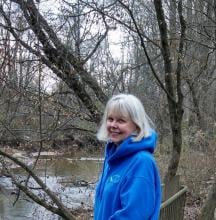Volunteer While You Sleep: Computing for Clean Water

What happens when thousands of volunteers join together to donate their unused computing power for humanitarian research? Hopefully, through the Computing for Clean Water project, access to clean water is closer to reality for nearly one billion people around the world who still don’t have safe drinking water and sanitation.
The World Community Grid, crowdsourced by IBM, is an effort that enables anyone with a computer or mobile device to donate their unused computing power towards research for projects such as finding a potential cure for Ebola or childhood cancer—or less expensive water filter technologies that enable clean water.
Researchers had speculated that carbon nanotubes, with a diameter that’s essentially one ten-thousandth the diameter of a human hair, could purify water by allowing water molecules to pass through, while blocking larger pathogens and contaminants. Previously, lack of sufficient computing power hampered studying the process at realistic water flow rates.
However, by running massive computer simulations on the World Community Grid, the global scientific team discovered that using carbon nanotubes, under specific conditions, could potentially lead to more efficient water filtering—possibly increasing water flow rate by 300 percent. The process would be cheaper and would also have less impact on the environment. The discovery may also shed light on how chemicals and medicines are transported through tiny channels in the walls of living cells. The research is published in the Nature Nanotechnology journal.
“Computing for Clean Water and similar volunteer computing initiatives are playing an increasingly important role in major scientific computing breakthroughs, ranging from drug discovery and climate modeling to epidemiology and particle physics research,” stated François Grey, who coordinated the international effort and manages the Citizen Cyberscience Centre. “As this study shows, the range of research questions that can benefit from public participation is growing all the time, in step with the power of personal computing.”
IBM estimates that volunteers for the Computing for Clean Water project contributed processing time that performed nearly 100 million calculations, equivalent to more than 37,000 years of processing time on a single computer, an amount worth $15 million USD if the research were performed commercially.
The projects use BOINC (Berkeley Open Infrastructure for Network Computing) open source software that volunteers download from the website. More than 150,000 World Community Grid volunteers—including yours truly—supported the Computing for Clean Water research effort. Ready to sign up? Here are some current research projects that need your spare computing power. #giveback

